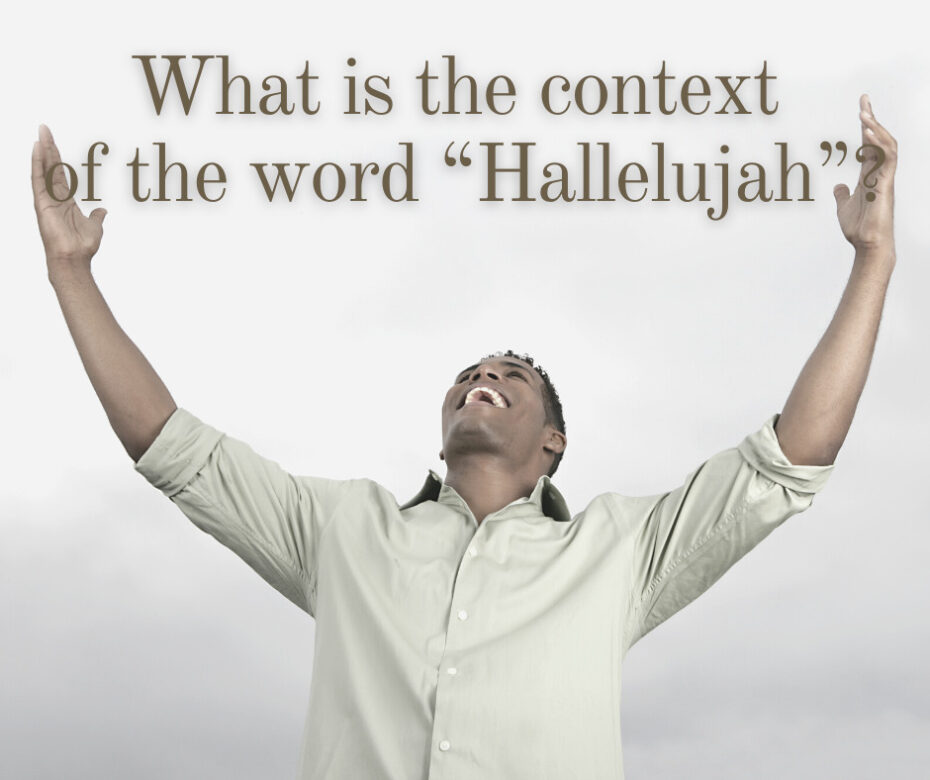Psalm 104 is a song that praises God for His creation. Every living creature benefits from what He has done. He has given us life, water, food, and places to live. He even provides us things that are not necessary for survival, such as wine and oil, in order to make our lives merrier. In addition, there is a wide variety of animal and plant life. All can look at His creation and see that He is good (Rom 1:20).
But the psalm points to a problem in this creation. Because of sin, there is a curse. Specifically, death is a reality in our present existence. The breath of life will leave us all and we will turn to dust (v 29; Gen 3:19). But the psalmist also indicates that this is not the way it will be forever. He longs for the day when “the wicked be no more” (v 35). Death was brought into our world because of sin. When the day comes in which there is no longer sin, the curse will be a thing of the past as well.
In the NKJV, the last words of this psalm are, “Praise the Lord!” In Hebrew, this is expressed with just one well-known word–Hallelujah. It will occur many more times in the Book of Psalms, but interestingly, this is its first occurrence.
In a psalm that calls upon the reader to praise God because of His creation, it is appropriate that He would also call us to praise Him in light of His new creation. There will be a new heaven and Earth in which His people will continue to enjoy His incredible benefits, but in a way far better than anything we have experienced in this present world. Sin and death will be no more.
We often use the word hallelujah, but perhaps some readers of this blog don’t realize how rare it is in the NT. It occurs in only one chapter, Revelation 19, which describes Christ’s return to set up His millennial kingdom. This kingdom will be the beginning of what will later be the Lord’s eternal kingdom spoken of in Psalm 104.
The word hallelujah occurs four times in Revelation 19’s description of the King’s return to Earth (Rev 19:1, 3, 4, 6). Of course, these verses were the inspiration for the famous, beautiful chorus that we hear every Easter–“Hallelujah” from Handel’s Messiah.
Psalm 104 is a call to worship the Lord. (This psalm is, in fact, the inspiration for the famous hymn, “O Worship the King, All Glorious Above.”) The psalm starts and ends on that theme with the words, “Bless the Lord, O my soul” (vv 1, 35). The psalmist ends by adding the word, Hallelujah!
I have to think that John was thinking of Psalm 104 when he saw the vision of the Lord’s return, then described it in Revelation 19. The multitude of angels in heaven say “Hallelujah” when they see the Lord returning. This multitude seems to include the raptured Church as well. The 24 elders and four living creations around the throne of God join in the praise.
Such events resulted in at least two hymns of praise. When we think of what the psalmist says in Psalm 104, and see how it comes to pass in Christ’s coming, what other response is appropriate for the people of God? In anticipation of what we will be doing as believers on that day, let’s offer Him our “Hallelujah” now, and look forward to that glorious future day. What a glorious creation awaits us!


